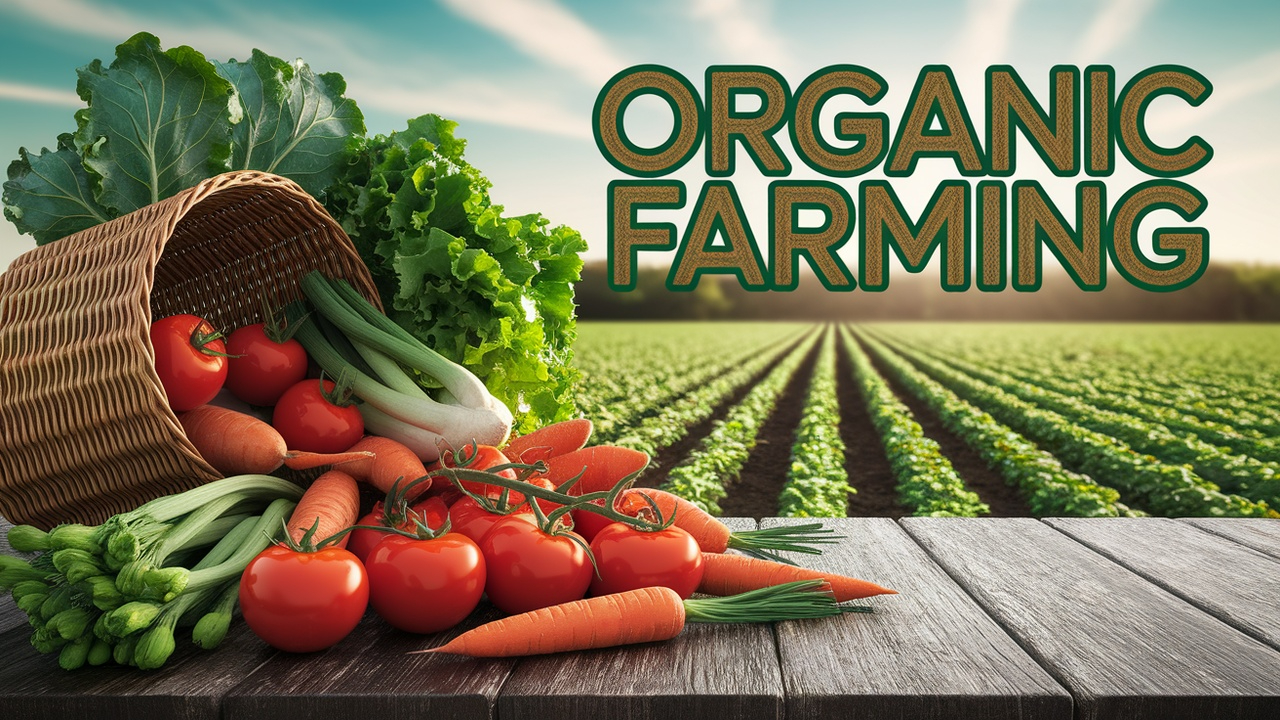
This comprehensive course provides an introduction to the principles and practices of organic farming. Participants will learn about sustainable agriculture methods, soil health, pest management, and crop selection, empowering them to start their own organic farming journey.
Course Levels
-
Level 1: Introduction to Organic Farming
Get acquainted with the fundamental concepts of organic farming, its importance, and its benefits compared to conventional farming.
-
Level 2: Soil Health and Management
Dive deeper into the essential role of soil health in organic farming and learn techniques for maintaining and improving it.
-
Level 3: Crop Selection and Planning
Learn how to select suitable crops for organic farming and how to effectively plan your planting schedule.
-
Level 4: Pest and Disease Management
Explore organic methods for managing pests and diseases, focusing on prevention and natural treatment options.
-
Level 5: Sustainable Practices and Techniques
Discover sustainable farming practices that enhance environmental health and help create a more resilient farming system.
-
Level 6: Harvesting and Post-Harvest Management
Learn the best practices for harvesting organic crops and managing them post-harvest to maintain quality and safety.
-
Level 7: Business Aspects of Organic Farming
Gain insights into the business side of organic farming, including financial planning, marketing, and regulations.
-
Level 8: Advanced Organic Farming Techniques
Explore advanced techniques and innovative practices that can enhance the productivity and sustainability of organic farms.
Course Topics
-
Harvesting Techniques for Different Crops
# Harvesting Techniques for Different Crops Harvesting is a critical phase in the lifecycle of crops, particularly in organic farming, where the quality of the produce is paramount. This topic will e...
-
Hydroponics and Aquaponics Basics
# Hydroponics and Aquaponics Basics ## Introduction Hydroponics and aquaponics are innovative methods of growing plants without soil, utilizing nutrient-rich water solutions to provide the essential ...
-
Identifying Common Pests and Diseases
# Identifying Common Pests and Diseases ## Introduction In organic farming, it is crucial to identify common pests and diseases to manage them effectively. Understanding the signs of infestation and ...
-
Future Trends in Organic Farming
# Future Trends in Organic Farming Organic farming is evolving rapidly as new technologies, consumer preferences, and environmental considerations shape its future. This section explores emerging tre...
-
Biodiversity in Organic Farming
# Biodiversity in Organic Farming Biodiversity refers to the variety of life forms on earth, including the different species of plants, animals, and microorganisms. In the context of organic farming,...
-
Benefits of Organic Farming
# Benefits of Organic Farming Organic farming is an agricultural approach that focuses on sustainability, ecosystem health, and biodiversity. This method avoids synthetic chemicals and genetically mo...
-
Principles of Organic Agriculture
# Principles of Organic Agriculture Organic agriculture is a holistic approach to farming that emphasizes sustainability, biodiversity, and the health of the ecosystem. Understanding the core princip...
-
Crop Rotation Principles
# Crop Rotation Principles Crop rotation is a fundamental practice in organic farming that enhances soil health, optimizes nutrient availability, and reduces pest and disease pressure. Understanding ...
-
Soil Testing and Analysis
# Soil Testing and Analysis ## Introduction Soil testing is a critical component of effective soil management and is essential for organic farming practices. It provides valuable information about so...
-
Soil Fertility and Nutrient Management
# Soil Fertility and Nutrient Management Soil fertility is a critical aspect of organic farming, as it directly influences plant growth, crop yield, and overall agricultural sustainability. In this s...
-
Advanced Soil Management Techniques
# Advanced Soil Management Techniques Soil management is a critical aspect of organic farming, influencing crop yield, soil health, and the overall sustainability of agricultural practices. In this m...
-
Seed Selection and Sourcing
# Seed Selection and Sourcing Selecting the right seeds is crucial for successful organic farming. The choice of seeds can impact crop yields, resilience to pests and diseases, and overall farm susta...
-
History and Evolution of Organic Farming
Detailed markdown content with headings, paragraphs, code examples (if applicable), and practical examples. Make it comprehensive yet user-friendly....
-
Companion Planting Strategies
# Companion Planting Strategies Companion planting is a sustainable strategy used in organic farming that involves planting different crops in proximity for mutual benefits. This method not only enha...
-
Seasonal Crop Planning
# Seasonal Crop Planning Seasonal crop planning is a vital aspect of organic farming, enabling farmers to maximize yield while maintaining ecological balance. A well-designed seasonal crop plan takes...
-
Navigating Organic Regulations and Standards
# Navigating Organic Regulations and Standards Understanding organic regulations and standards is crucial for anyone involved in organic farming. This topic explores the key regulations, certificatio...
-
Permaculture Principles
# Understanding Permaculture Principles Permaculture is a holistic approach to agriculture that seeks to create sustainable and self-sufficient ecosystems. The principles of permaculture provide a fr...
-
Integrated Pest Management (IPM) Principles
# Integrated Pest Management (IPM) Principles Integrated Pest Management (IPM) is a holistic approach to managing pest populations in a sustainable and environmentally friendly manner. It emphasizes ...
-
Understanding Soil Composition
# Understanding Soil Composition Soil is a complex and dynamic natural resource that is crucial for agricultural productivity, environmental health, and sustaining biodiversity. In this section, we w...
-
Organic Certification for Processed Products
# Organic Certification for Processed Products Organic certification is essential for farmers and producers who wish to market their processed products as organic. This certification ensures that the...
- And 20 more topics...